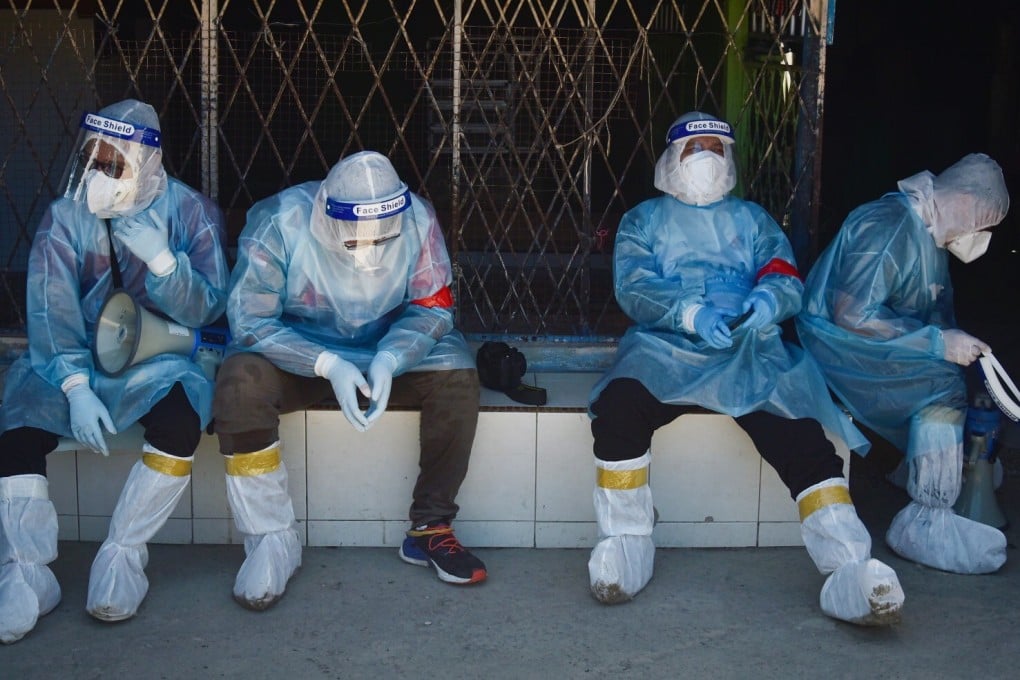Coronavirus: as Malaysia’s contract doctors prepare for day-long strike, who is to blame for their woes?
- Thousands of medics have planned to take part in an industrial action on Monday to express their discontent with a contract system they say is unfair
- After much delay, Muhyiddin’s government tweaked some policies to pacify the aggrieved doctors but organisers called the move ‘half-baked’ and vowed to go ahead with the strike

The task at hand is grim, with these centres and hospitals operating at near capacity and doctors on some occasions required to triage patients based on their chances of survival.
Despite anxieties about the future of his career weighing on his mind, Dr John said he is putting in his all to the Covid-19 battle.
The 29-year-old doctor – who requested to use a pseudonym – is among 23,077 contract medical officers nationwide who are in limbo over a lack of pathways to obtain permanent jobs.
They were recruited following a stopgap policy implemented in 2016 that offered temporary contracts to housemen as a way to employ them without permanently expanding the national headcount for public sector doctors.
But since then, authorities have offered little clarity on plans for a long-term fix to the problem.